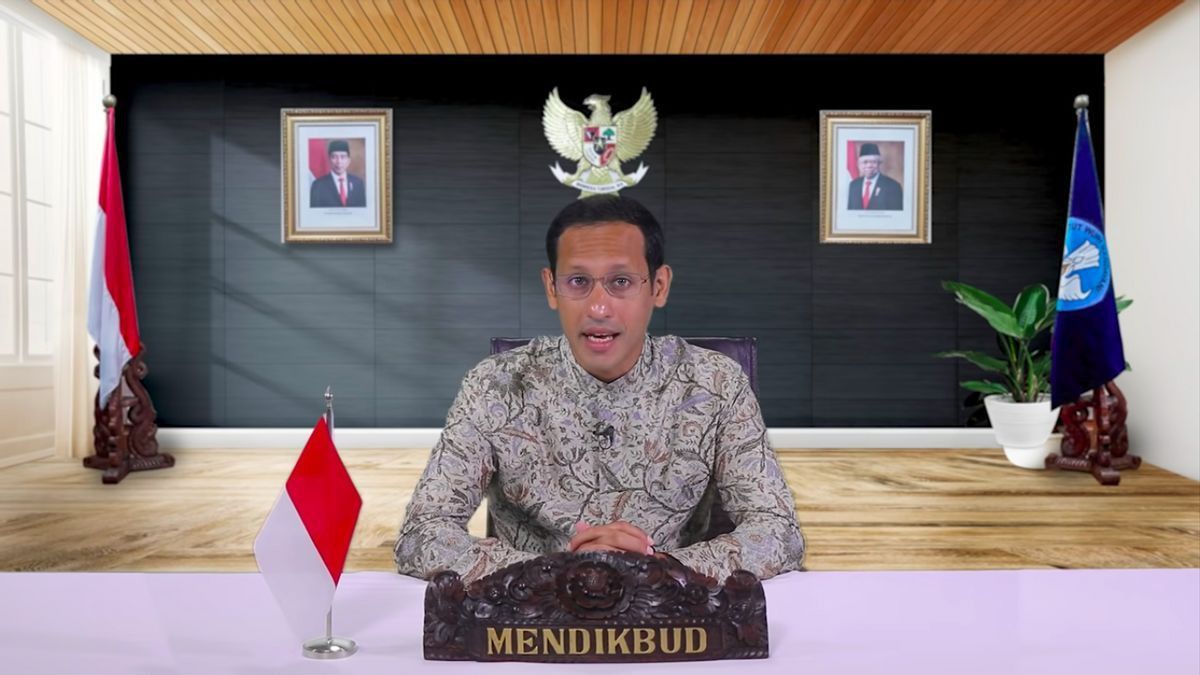
JAKARTA - Regulation of the Minister of Education, Culture, Research, and Technology (Permendikbudristek) Number 30 of 2021 concerning the Prevention and Handling of Sexual Violence (PPKS) reaps the pros and cons. From the name, this regulation is intended to prevent sexual violence. However, this is opposed because it is considered to legalize free sex. Is that right?
Seeing the prevalence of immoral acts on campus, Minister of Education and Technology Nadiem Makariem issued Permendikbudristek Number 30 of 2021 concerning Prevention and Handling of Sexual Violence (PPKS) in Higher Education. This is because students and lecturers are anxious about sexual violence in universities.
Acting Director General of Higher Education and Research and Technology Nizam said this regulation was made to ensure that citizens' rights to education are maintained. "Permendikbudristek Number 30 of 2021 is here as our first step to respond to the concerns of students, lecturers, university leaders, and the public about the increasing cases of sexual violence in our universities," Nizam said as quoted by Detik.
According to Nizam, Permendikbud No. 30 can direct higher education leaders to provide restoration of the rights of the academic community who are victims of sexual violence. The goal is that victims can return to work and contribute to their campus more safely.
His party also emphasized the focus of the Minister of Education and Culture Number 30 of 2021 regarding the prevention of sexual violence. "We invite university leaders to be able to prepare and form a Task Force (Satgas) for the Prevention and Handling of Sexual Violence in accordance with Permendikbudristek 30/2021 so that the campus becomes a safer and more comfortable learning environment to realize Independent Learning," said Nizam.

However, Permendikbudristek Number 30 has also drawn criticism from many parties. For example, one of the largest Muslim organizations in Indonesia, Muhammadiyah.
Responding to Permendikbudristek Number 30, Muhammadiyah does agree with the government's goal of fighting sexual violence. However, the PP Muhammadiyah Higher Education Research and Development Council (Diktilitbang) urged the government to improve it.
The Muhammadiyah Diktilitbang Council through its press release on November 8 assessed that there were formal and material defects in the regulation. According to the Secretary of the Muhammadiyah Central Leadership Diktilitbang Council, Sayuti, one of the issues that were questioned was the sentence in Article 5 paragraph (2).
In Article 5 paragraph (2) there is the phrase "without the victim's consent" which according to Sayuti implies that sexual activity can be justified if there is "victim's consent". Or in other words, Permendikbud No. 30 contains elements of legalization of immoral acts and consent-based free sex. This reason prompted PP Muhammadiyah's Diklitbang to reject the ratification of Permendikbud Number 30 and asked the government to immediately revoke and correct it.
“In our opinion, the sentence, the phrase 'without consent' from the victim degrades the Permen itself, that it can be justified if there is consent from the victim. That is what is important for us to record," Sayuti was quoted as saying on the official Muhammadiyah website.
“The context of un-Islamic sexual relations (outside of marriage) in whatever form it takes does not become true once there is consent from the victim. Still not true. That's the most important material factor why we, with intensive discussions, rejected this regulation," he added.
Article 5 paragraph (2) of Permendikbudristek Number 30 explains the scopes of what constitutes an act of sexual violence. For example, in Article 5 paragraph (2) point l, it states that sexual violence includes acts carried out physically including: touching, rubbing, touching, holding, hugging, kissing and/or rubbing body parts on the victim's body without the victim's consent.
Another reason Muhammadiyah rejects Permendikbud Number 30 according to Sayuti is because of a formal defect. These defects include, among others, not meeting the principle of openness in the process of its formation as regulated by Article 5 letter g of Law Number 12 of 2011 concerning the Establishment of Legislation.
In addition, according to Sayuti, Permendikbudristek Number 30 also regulates norms that are too rigid and reduces the autonomy of higher education institutions with the formation of a Task Force. “For us, the task force has violated the spirit of the Higher Education Law that there is campus autonomy. On campus there is a chancellor, vice chancellor, in Muhammadiyah there is an AIK institution, in Muhammadiyah that (immoral) behavior must be a bad record for lecturers, educators, and students because we have had several cases where we terminated lecturers, we suspended them and so on. Muhammadiyah campuses have already happened.”

Trisakti University Public Policy Observer Trubus Rahadiansyah agrees that Permendikbudristek Number 30 can be interpreted as legalizing free sex. Because this regulation is not made in detail.
"The meaning is actually how to regulate how to avoid violence or sexual harassment on campus. Only then this has multiple interpretations because there is no detailed explanation. Because it can be interpreted as legalizing free sex," Trubus told VOI.
According to him, Trubus from one of the phrases contained in the regulation can create understanding as long as there are parties who are willing to do the same, then there is no problem. "Because there seems to be an understanding, as long as there are parties who want it, fine. So the impression is that they want to be together."
For this reason, Trubus suggested that the multi-interpreted article should be revised. According to him, policies in the form of regulations must be made clear, transparent and firm.
"So you can't float like that. Because then the interpretation will be everywhere," said Trubus.
Meanwhile Trubus also does not deny that this regulation is formally flawed. This is because this policy is under discussion for minimal public consultation. "In fact, it should have invited stakeholders, so it was a discussion first, asking for input. So it was a formal defect because the process was not passed."
No urgencyPublic Policy Observer Trubus Rahadiansyah believes that Permendikbudristek Number 30 has no urgency. Because many regulations like this have been made.
Still according to Trubus, the problem is the lack of law enforcement and lack of education to the public. "But the problem is getting worse because of weak supervision and lack of education to the public. So this is the problem with the lack of law enforcement officers."
The community, Trubus said, is actually developing dynamically. So the existing regulations must continue to move to follow them.
And according to Trubus, actually Permendikbudristek Number 30 is eager to follow this development. "It's just a way of thinking, one millennial way of thinking, one colonial one. So it doesn't connect," said Trubus.
*Read other information about SEXUAL HARASSMENT or read other interesting articles from Ramdan Febrian Arifin.
Other BERNASThe English, Chinese, Japanese, Arabic, and French versions are automatically generated by the AI. So there may still be inaccuracies in translating, please always see Indonesian as our main language. (system supported by DigitalSiber.id)








